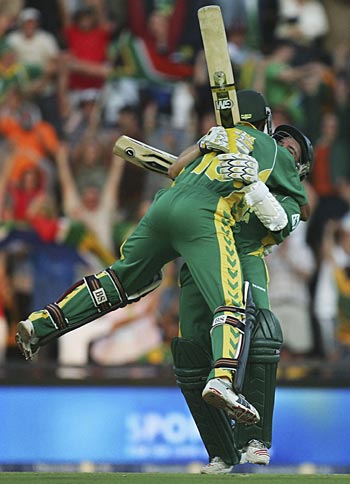Widespread poverty is a disease. It is not a natural condition of societies.
When you are sick you take some steps to cure it. Likewise, there must be an attempt at a cure for the disease of poverty.
But all of your life is not consumed by attempts to cure a disease. Most often, a disease is but an unfortunate and unexpected interruption to the flow of life, with which you deal with as efficiently and quickly as possible. And move on with your life. Again likewise, a society's whole existence should not be defined by its attempts at alleviating poverty. It should deal with it and cure it. And move on.
So how does one cure the disease of poverty?
Obviously this is a deep question. Or, is it?
It is my contention that the disease of poverty is not hard to cure. (I am not talking here of enabling people to buy flat screen TVs and DVD players, or procure property to take care of their progeny's progeny; I am talking only of the problem of providing basic amenities for a comfortable and fruitful life.)
Why, then, do we see large swaths of the world, or more pertinently for this post, of India, still under the grip of widespread poverty?
Out of 260 million poor people in the country [India], about 200 million poor people are in rural areas. Around 100 districts are under the constant threat of drought & semi-famine like situation every year. Other 90 districts face floods & torrential rains every year. About 25% rural households are landless laborers & bonded labor, and have no income generating assets. About 80 per cent of farmers are small & marginal and have inadequate and poor quality of assets with meager irrigation facilities. Rural artisans do not have access to modern tools/ equipment & marketing. Perpetual & pernicious poverty in rural areas is deeply rooted in large-scale unemployment among rural house- holds during half of the year. Chronic unemployment for a large part of the year is prevalent in hilly, tribal, desert &drought prone areas and the situation is exacerbated when monsoon fails.
According to National Social Watch, 48% people in 13 States of India viz. Andhra Pradesh, Tamil Nadu, Maharashtra, Gujarat, Arunachal Pradesh, Assam, Bihar, Chhattisgarh, Madhya Pradesh, Orissa, Rajasthan, and Uttar Pradesh do not get two meals a day. People in 45% rural India do not get work for six months in a year & 20% villages do not have work opportunities for people in any form. [Link]
Why, indeed, are we able to make incredible progress in almost every human realm and still not cure this first human disease?
My answer is: pursuit of a two-tiered approach which can be summarized as follows.
On the ideological/philosophical level: treating this problem as a permanent feature of societies. Or at least, as much more than a mere disease it really is. Making "the fight against poverty" the noblest activity. "Fight against poverty" is commendable, but it is fundamentally a temporary fight.
As a direct consequence of this philosophy, on the political/practical level:
centralizing all attempts to cure this disease. Theorizing that it is necessary to institute systems to rein in the pursuit of self-interest. Formulating that eradicating poverty needs sacrifices from citizenry.
Yet, the most successful and efficient steps toward a cure have come from the pursuit of self-interest. Whether in developing the scientific and technological tools that improved lives of billions; or, in developing industries which provided employment to billions of people.
If creating employment is your first and final goal, then the systems developed by you will necessarily be incompetent and corrupt. There will be no accountability, no checks on wastage, no demands of efficiency. Yet, this is what
governments do. And this what governments will ever be able to do.
If you have a goal (for instance, making as much money as possible) which requires creating employment and you are
allowed to pursue your goal, then meaningful and effective employment will be created. This sort of thing is
beginning to happen in India.
Started in late 2000, Project Shakti has extended Hindustan Lever's reach into 80,000 of India's 638,000 villages, on top of about 100,000 served by conventional distribution methods, according to Dalip Sehgal, the company's director of new ventures. The project accounts for nearly 15 percent of rural sales. The women typically earn between $16 and $22 per month, often doubling their household income, and tend to use the extra money to educate their children.
I am not saying that unhindered pursuit of self-interest by businesses will always be good. Nor am I saying that governments have no regulatory powers. An unlimited greed and the resultant unscrupulousness are also just diseases and should not be supposed to be permanent or natural conditions.
Governments should not play doctors who cure or medical researchers who find cures. They should only be nurses who give temporary relief when a disease becomes particularly painful or notorious.

